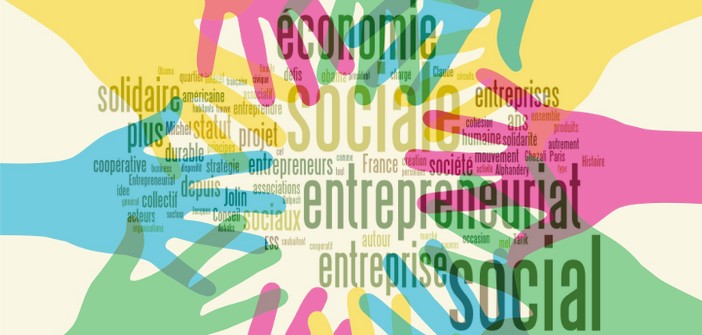The economic and social crisis has led to a thorough reassessment of the functioning of the economy in most countries around the world. Today, the State seems unable to face alone the rise in unemployment, the persistence of poverty, and environmental degradation.
For its part, the functioning of the market economy generates significant disparities, social or territorial development inequalities, and the exclusion of certain populations. This situation has encouraged, throughout the world, the emergence of another sector, that of the social and solidarity economy, which provides solutions by (re)placing humans at the center of economic and social development.
The Social and Solidarity Economy encompasses a plural reality and is often associated with other concepts such as social economy, solidarity economy, popular economy, and social entrepreneurship. These concepts are linked to different theoretical contexts and have diverse geographical origins. The solidarity economy shares with the social economy a common historical root and a goal to propose an alternative model to capitalism.
Enacted on July 31st last year, the law on social and solidarity economy has recognized this economy which represents 200,000 businesses and 2.3 million employees in France, including 16,632 establishments and 160,690 employees in the PACA region (accounting for 10% of employment).
The adoption of this text and the definition of its main application provisions were necessary to mobilize, on a significant and structured scale, new public tools for financial support.
The implementation of such tools thus constitutes the second step of this strategy.
Three new financings, operated by Bpifrance, in favor of the development of SSE and social innovation, on the occasion of the first steering committee of the “Social Innovation Investment Fund,”
The three new financing mechanisms
The Social Innovation Investment Fund (FISO), whose creation was announced in May 2013 by the President of the Republic following the Entrepreneurship Conference, will be jointly financed by the State and the regions, and managed by Bpifrance. With a total public capacity of 40 million euros, it will fund socially innovative projects through repayable advances that address unmet social needs by the market or public policies, with “investment tickets” of a minimum size of 30,000 euros.
Loans for Social and Solidarity Enterprises (PESS): Bpifrance will distribute these bank loans to SSE companies, as defined in Article 1 of the SSE law, through partnerships with the traditional banking network and specialized solidarity financiers. These loans, with a duration of 5 years and a one-year repayment deferment, can reach amounts between 20,000 € and 50,000 €, raised to 100,000 € with regional intervention. They will finance expenses related to the company’s development or the implementation of an investment program. This program is endowed with an initial “Bpifrance” commitment capacity targeted at €50 million for the 2015 and 2016 fiscal years, or more than €100 million in loans, including co-financing.
Finally, the third step will rely on the mobilization of private financiers, by encouraging private financiers to structure new vectors of solidarity investment or to amplify existing ones. This approach will be encouraged by the continuum of supports implemented by the Caisse des Dépôts and Bpifrance.
Nevertheless, several questions remain.
What are the financing issues for SSE actors, and what solutions have they themselves considered?
How can access to funding for these entities, often associated with non-profitability and thus “non-profitability,” be facilitated?
What instruments should be developed to bring the world of traditional companies closer to social entrepreneurship?
by Jérôme Vandamme


